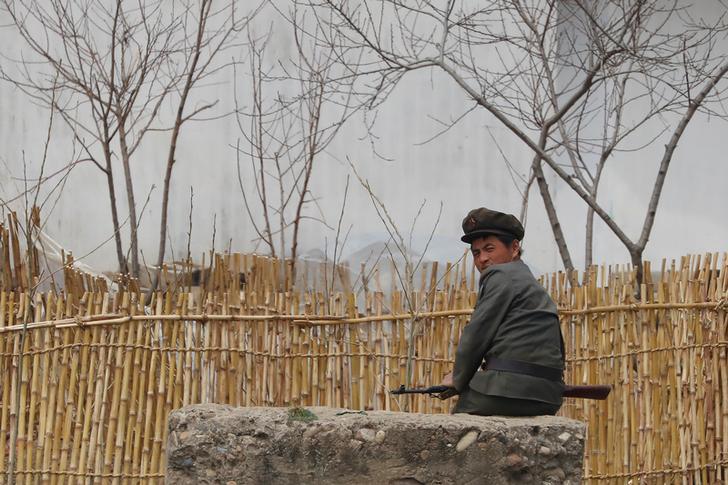Human Rights Watch Submission to the Ministry of Unification

February 15, 2021 Human Rights Watch Submission to the Ministry of Unification Regarding the Interpretation Guidelines of the Amendments of the Development of Inter-Korean Relations Act We are writing in response to your call for comments regarding the Interpretation Guidelines for the Scope of Application of Article 24(1)3 of the Development of Inter-Korean Relations Act.[1] The Amendment to the Development of Inter-Korean Relations Act (the “Act”) imposes strict limitations to some activities of North Korean escapee and civil society organizations that aim to send and receive information and ideas to people in North Korea. Most of these restricted activities are protected by the freedom of expression recognized in article 19 of the Universal Declaration of Human Rights and article 19 of the International Covenant on Civil and Political Rights (ICCPR), which South Korea ratified in 1990.[2] The United Nations Human Rights Committee, the independent expert body that monitors state compliance with the ICCPR, in its General Comment No. 34 on the right to freedom of expression, states that restrictions on free expression should be interpreted narrowly and that the restrictions “may not put in jeopardy the right itself.”[3] The government may impose restrictions only if they are prescribed by legislation and meet the standard of being “necessary in a democratic society.” This implies that the limitation must respond to a pressing public need and be oriented along the basic democratic values of pluralism and tolerance. “Necessary” restrictions must also be proportionate, that is, balanced against the specific need for the restriction being put in place. General Comment No. 34 also provides that “restrictions must not be overbroad.”[4] Rather, to be provided by law, a restriction must be formulated with sufficient precision to enable an individual to regulate his or her conduct accordingly.[5] Restrictions on freedom of expression to protect national security, “are permissible only in serious cases of political or military threat to the entire nation.”[6] Since restrictions based on protection of national security have the potential to completely undermine freedom of expression, “particularly strict requirements must be placed on the necessity (proportionality) of a given statutory restriction.”[7] We welcome the government’s clarifications about the scope of application of Article 24(1)3 of the Act, in particular that the provisions do not apply to activities taking place in third countries. However, we remain concerned about: This indeterminate and blanket formula may challenge the compliance of the amendment with international human rights standards, which prohibit vague or overbroad restrictions on freedom of expression. Lastly, it could be argued that some restrictions in the Act are required under the Panmunjom Declaration for Peace, Prosperity and Unification of the Korean Peninsula of April 27, 2018.[9] We acknowledge that compliance with the declaration’s terms could be considered necessary to protect national security, consistent with international human rights law. However, the Act contains several restrictions that go far beyond what South Korea and North Korea agreed to in the declaration.
The only actions that South Korea and North Korea agreed to in the declaration were to halt loudspeaker broadcasting and the scattering of leaflets in the areas along the Military Demarcation Line (see section 2.1 of the Panmunjom Declaration).[10] Thank you for your consideration. Lina Yoon Senior Korea Researcher Human Rights Watch [1] Ministry of Unification, Announcement of Administrative Guidelines for Interpretation Related to the Scope of Application under Article 24 (1) 3 of the Act on the Development of Inter-Korean Relations, January 22, 2021, https://www.unikorea.go.kr/unikorea/news/notice/?boardId=bbs_0000000000000001&mode=view&searchCondition=all&searchKeyword=&cntId=55086&category=&pageIdx= (accessed February 12, 2021); Amendment to the Development of Inter-Korean Relations Act (adopted December 29, 2020), https://www.law.go.kr/LSW//lsSc.do?section=&menuId=1&subMenuId=15&tabMenuId=81&eventGubun=060101&query=%EB%82%A8%EB%B6%81%EA%B4%80%EA%B3%84+%EB%B0%9C%EC%A0%84%EC%97%90+%EA%B4%80%ED%95%9C+%EB%B2%95%EB%A5%A0#undefined (accessed February 12, 2021). [2] UN General Assembly Resolution 217 A, Universal Declaration of Human Rights, December 10, 1948, https://www.un.org/en/universal-declaration-human-rights/ (accessed February 12, 2021), art. 19; International Covenant on Civil and Political Rights (ICCPR, art. 19), art. 19. [3] UN Human Rights Committee, General Comment no. 34, Article 19, Freedoms of Opinion and Expression, CCPR/C/GC/34, 2011, https://www2.ohchr.org/english/bodies/hrc/docs/gc34.pdf (accessed February 13, 2021), para. 21. [4] Ibid., para. 34. [5] Ibid., para. 25. See also European Court of Human Rights, Sunday Times v. United Kingdom, Judgment of 26 April 1979, Series A, no. 30, ECHR 1, para. 49. [6] Manfred Nowak, U.N. Covenant on Civil and Political Rights: CCPR, Commentary (Kehl am Rhein, Germany: N.P. Engel, 2d ed. 1993), p. 463-64. [7] Ibid., p. 465-66. [8] Amendment to the Development of Inter-Korean Relations Act (adopted 29 December 2020), art. 24(1)3. [9] Panmunjom Declaration for Peace, Prosperity and Unification of the Korean Peninsula, http://www.mofa.go.kr/eng/brd/m_5478/view.do?seq=319130&srchFr=&srchTo=&srchWord=&srchTp=&multi_itm_seq=0&itm_seq_1=0&itm_seq_2=0&company_cd=&company_nm=&page=1&titleNm (accessed February 13, 2021). [10] Ibid., section 2.1.
Read the full article at the original website
References:
- https://www.unikorea.go.kr/unikorea/news/notice/?boardId=bbs_0000000000000001&mode=view&searchCondition=all&searchKeyword=&cntId=55086&category=&pageIdx=
- https://www.law.go.kr/LSW/lsSc.do?section=&menuId=1&subMenuId=15&tabMenuId=81&eventGubun=060101&query=%EB%82%A8%EB%B6%81%EA%B4%80%EA%B3%84+%EB%B0%9C%EC%A0%84%EC%97%90+%EA%B4%80%ED%95%9C+%EB%B2%95%EB%A5%A0#undefined
- https://www.un.org/en/universal-declaration-human-rights/
- https://www2.ohchr.org/english/bodies/hrc/docs/gc34.pdf
- http://www.mofa.go.kr/eng/brd/m_5478/view.do?seq=319130&srchFr=&srchTo=&srchWord=&srchTp=&multi_itm_seq=0&itm_seq_1=0&itm_seq_2=0&company_cd=&company_nm=&page=1&titleNm
